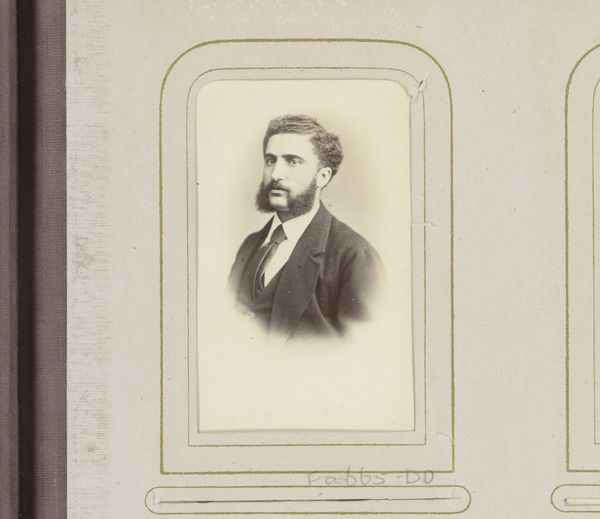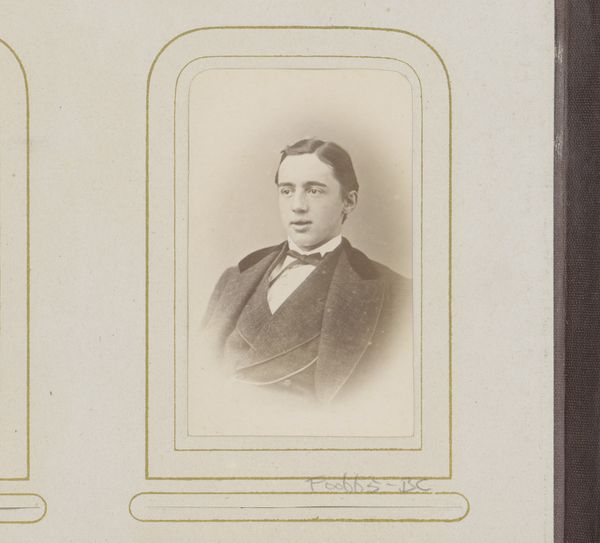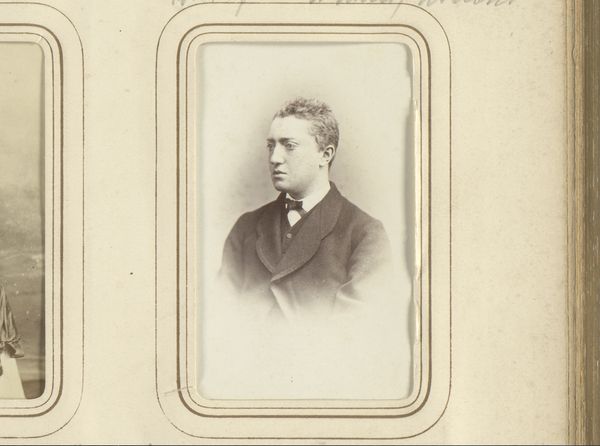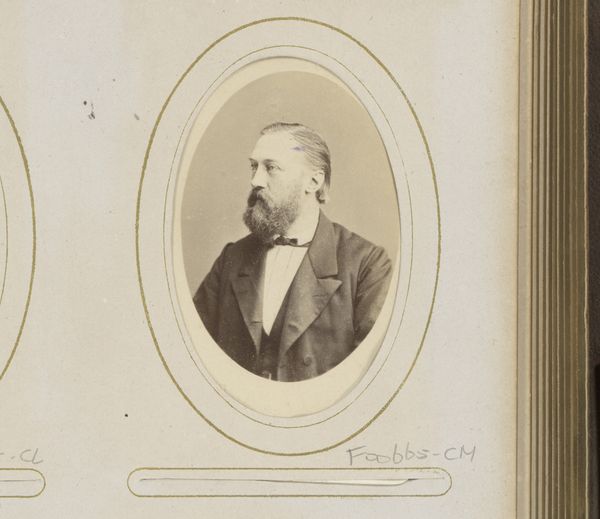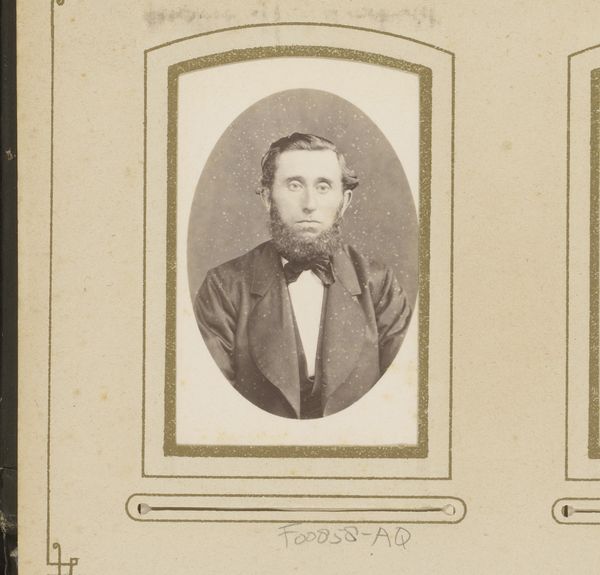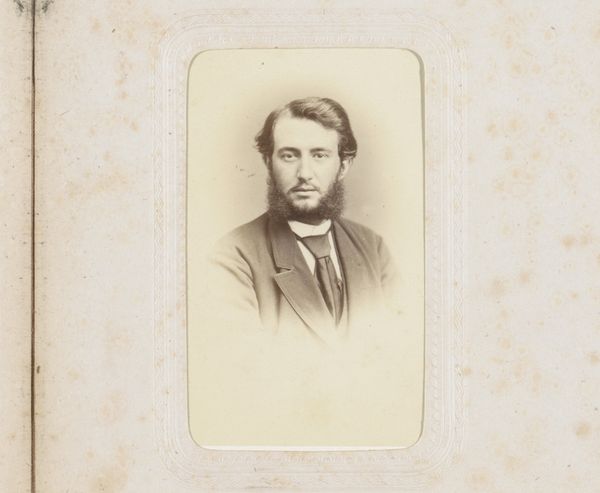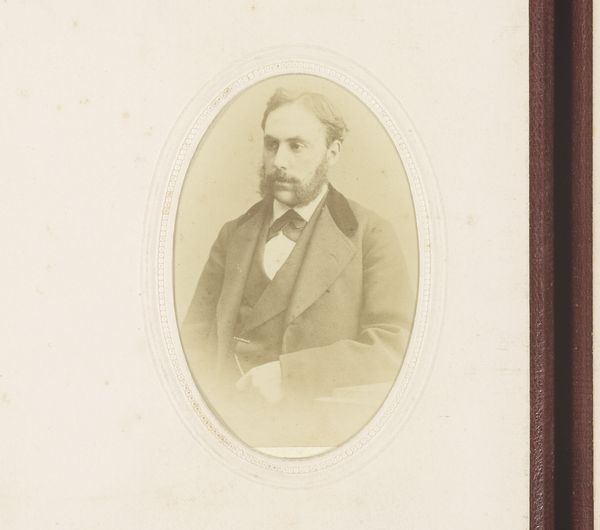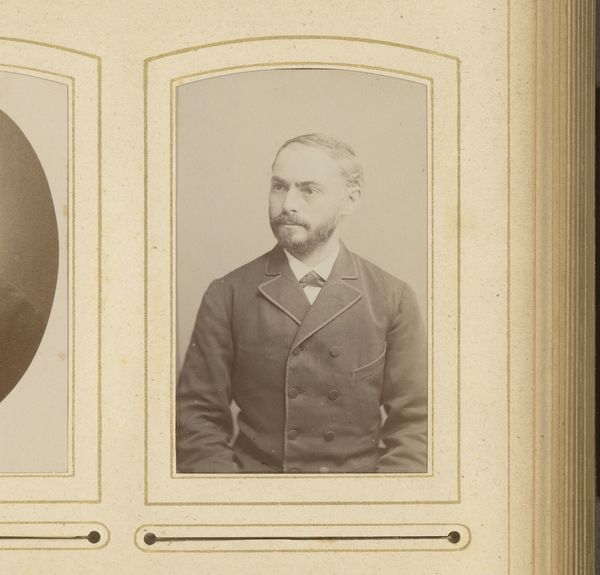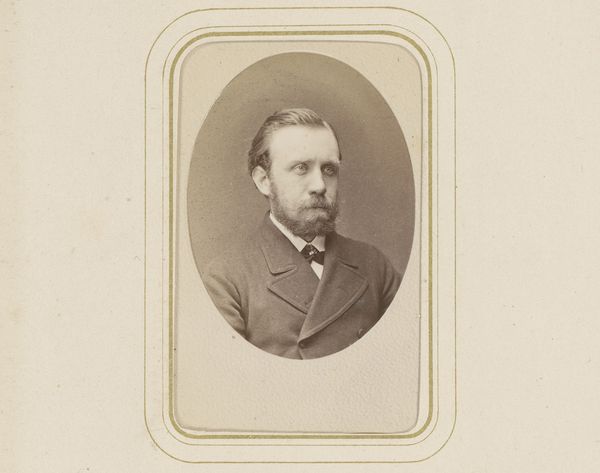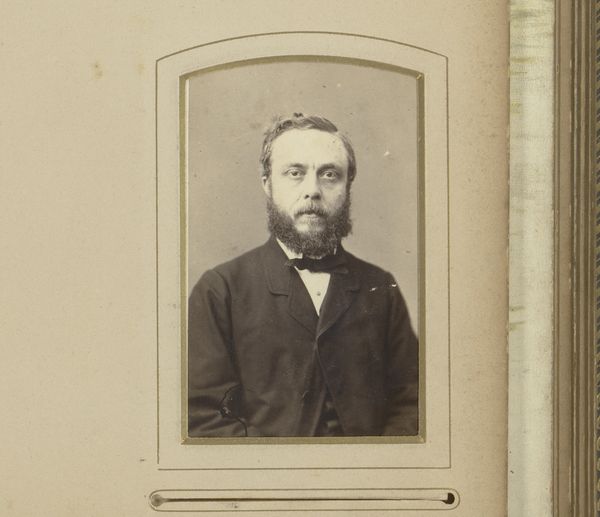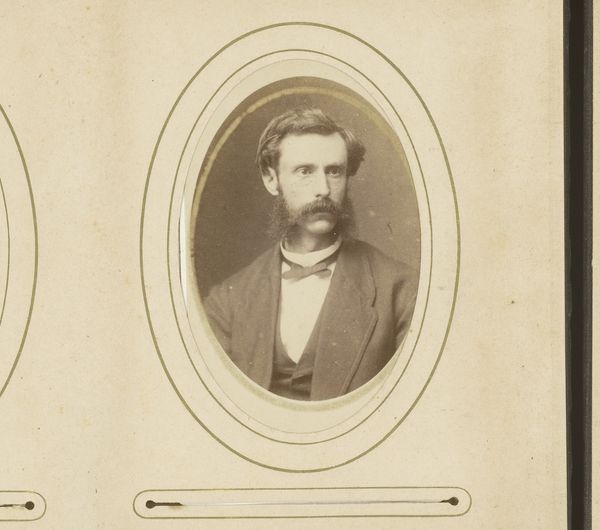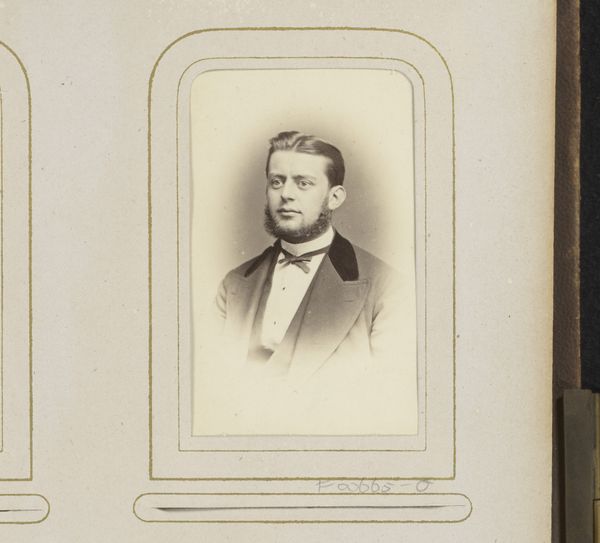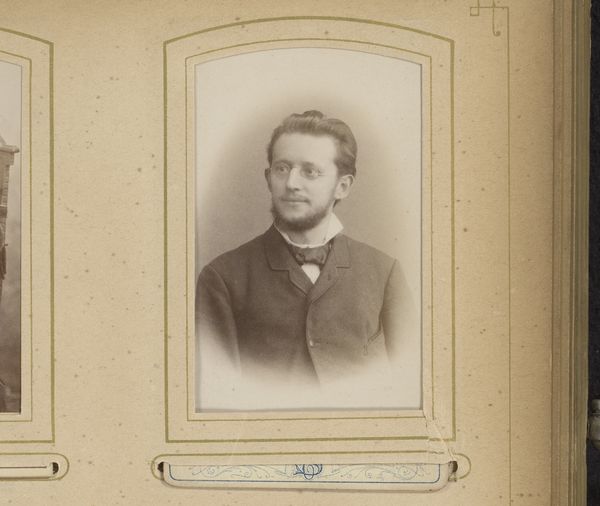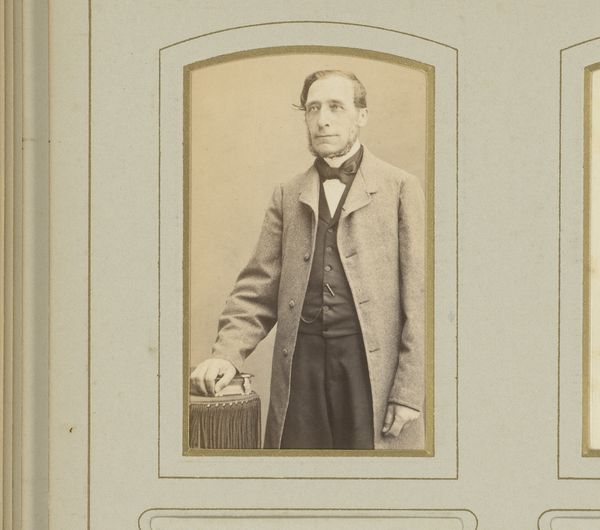
photography
#
portrait
#
aged paper
#
toned paper
#
vintage
#
yellowing background
#
photo restoration
#
photography
#
historical photography
#
yellow element
#
19th century
#
genre-painting
#
golden font
#
gold element
Dimensions: height 82 mm, width 51 mm
Copyright: Rijks Museum: Open Domain
Editor: Here we have a portrait, "Portret van een man met baard," made sometime between 1860 and 1900 by R. Suess. The piece is a photograph presented on what looks like aged or toned paper. What stands out to me is how this image, despite its age, feels immediately familiar, like looking through a cherished family album. What do you see in this work? Curator: It’s fascinating how the patina of time itself becomes part of the portrait's symbolism. Notice how the yellowing background and the golden accents in the album lend a sense of value and history to the subject. The portrait captures not just a man, but the very *idea* of the 19th-century gentleman. The bow tie, the cut of the jacket... these were potent signifiers. But look at the man's eyes. What do *they* tell you? Editor: They seem to hold a certain melancholic introspection, a common feature, I suppose, in a lot of portraits of that time. Perhaps an awareness of mortality, but more, an awareness of being observed, or documented. Curator: Precisely! The act of sitting for a photograph was a momentous occasion, imbued with the weight of posterity. How do you think the cultural understanding of “portrait” changed with photography, as opposed to painting, for example? Editor: I think the photograph gives a sense of objectivity or accuracy that maybe wasn’t there before. Whereas a painted portrait is someone’s *interpretation* of a person, a photograph seems more like a trace, a record, of that person’s literal existence. Curator: It's true. The photographic portrait becomes a sort of reliquary, containing not just an image but a fragment of the past, infused with the social values and self-conceptions of the time. I wonder what stories *he* could tell, and what meanings we project onto him today. Editor: It’s interesting to consider how photography kind of democratized the idea of portraiture. Now everyone can be preserved in some way. This portrait really makes you think about all of the personal and cultural layers behind even one simple image.
Comments
No comments
Be the first to comment and join the conversation on the ultimate creative platform.
